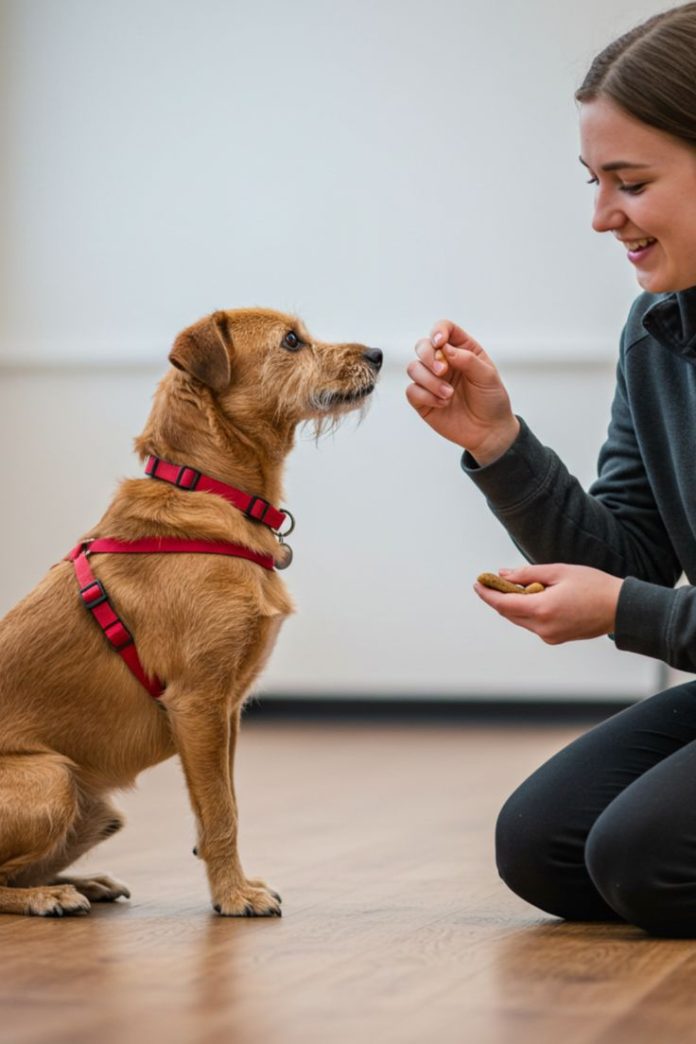For many dog owners in Los Angeles, the joy of companionship can sometimes be overshadowed by challenging behaviors like reactivity and fear. Walks in the city’s bustling parks or encounters with new people can quickly turn stressful if a dog barks, lunges, or cowers due to these underlying emotional states. Addressing these complex behaviors requires specialized training beyond basic obedience; it demands expert intervention from top dog training LA who understand the nuances of canine fear and reactivity and employ humane, effective modification strategies.
These leading professionals are dedicated to transforming your dog’s emotional response to triggers, fostering a more peaceful, confident, and enjoyable life for both you and your canine companion in the dynamic Los Angeles environment.
Understanding Reactive and Fearful Behaviors
While often misunderstood, reactivity and fear are distinct but frequently intertwined behavioral challenges:
Dog Reactivity
- Definition: Characterized by excessive barking, lunging, pulling, or growling at specific triggers (like other dogs, people, or vehicles) while on leash or behind a barrier.
- Root Cause: Often stems from fear, anxiety, frustration, or over-excitement. Reactive dogs are frequently overwhelmed and use these behaviors to create distance from something they perceive as a threat or an unmanageable stimulus.
- Common Triggers in LA: Other dogs on sidewalks, joggers, skateboarders, loud city noises, or unfamiliar people approaching.
Dog Fear
- Definition: An emotional response to a perceived threat or danger, leading to behaviors like cowering, trembling, hiding, freezing, avoidance, or even aggression (when feeling trapped or cornered).
- Root Cause: Can be due to lack of early socialization, traumatic experiences, genetic predisposition, or pain.
- Manifestations in LA: Fear of loud noises (fireworks, sirens), specific objects (umbrellas, trash cans), new environments (vet clinics, busy streets), or certain types of people.
Why Specialized Training is Essential
Basic obedience classes, while valuable, are rarely sufficient for addressing reactivity and fear. These complex behaviors require a targeted, multi-faceted approach:
1. Addressing the Root Cause
The best training for reactive and fearful dogs goes beyond simply stopping the outward behavior. It focuses on changing the dog’s underlying emotional response to the trigger, helping the dog feel safer and more comfortable, rather than just suppressing symptoms.
2. Safety and Management
While training is underway, preventing reactive outbursts or overwhelming fearful situations is crucial for safety and to avoid reinforcing the unwanted behavior. Specialized trainers teach effective management strategies, such as proper leash handling, recognizing early warning signs, and creating appropriate distance from triggers.
3. Building Confidence and Resilience
Many reactive and fearful dogs lack confidence. Effective training builds their self-assurance, teaching them new coping mechanisms and helping them learn that they don’t need to react defensively or avoidantly to manage their environment.
4. Intensive Owner Education
A significant component of successful reactivity and fear training is educating the owner. You’ll learn to read your dog’s subtle body language and stress signals, understand their triggers, and know how your own reactions can influence your dog’s behavior.
Key Training Methods for Reactive and Fearful Dogs
Top dog trainers in Los Angeles utilize proven, humane methods for reactivity and fear:
1. Desensitization
This involves gradually exposing your dog to their trigger at a very low intensity, where they remain calm and below their “threshold” for reacting. The intensity (e.g., distance from another dog, volume of a sound) is slowly increased over time as your dog shows comfort.
2. Counter-Conditioning
This technique changes your dog’s negative emotional association with a trigger to a positive one. For example, every time your dog sees their trigger (e.g., another dog), they immediately receive a high-value treat. Over time, they begin to associate the trigger with good things, rather than fear or frustration.
3. Positive Reinforcement
Rewarding calm behavior and desired responses (like looking at you instead of the trigger, or choosing to approach a new object) is fundamental. This reinforces good choices and makes the training process enjoyable for your dog.
4. Management Strategies
This includes teaching you how to avoid or safely navigate situations that trigger your dog’s reactivity or fear while training is ongoing. This might involve changing walking routes, using a head halter or front-clip harness, or practicing “U-turns” when a trigger appears.
5. Impulse Control & Focus Exercises
Teaching your dog to focus on you amidst distractions and to control their impulses is vital. This includes “look at that” games, “touch” commands, and reliable “sit” or “down” stays.
What to Look for in a Trainer for Reactive and Fearful Dogs in LA
- Specialization: Ensure the trainer has a proven track record and extensive experience specifically with reactive and fearful dogs.
- Certifications: Prioritize trainers certified by reputable organizations like CPDT-KA (Certified Professional Dog Trainer – Knowledge Assessed), KPA CTP (Karen Pryor Academy Certified Training Partner), or CDBC (Certified Dog Behavior Consultant), which indicate adherence to ethical, science-based methods.
- Humane Methods: Confirm they use positive reinforcement, desensitization, and counter-conditioning. Avoid trainers who suggest punishment-based or aversive techniques for reactivity or fear, as these can worsen the underlying issues.
- Owner Education: The trainer should be skilled at teaching you how to handle situations and continue the training effectively.
- Initial Consultation: A thorough assessment is crucial to understand your dog’s specific needs and create a tailored plan.
Conclusion
Finding the best dog training in Los Angeles for reactive and fearful dogs is an investment in peace of mind and a happier life for your pet. By partnering with a trainer who understands these complex behaviors and employs humane, science-based methods, you can help your dog overcome their challenges, build confidence, and enjoy a calmer, more integrated life in the vibrant Los Angeles community.










